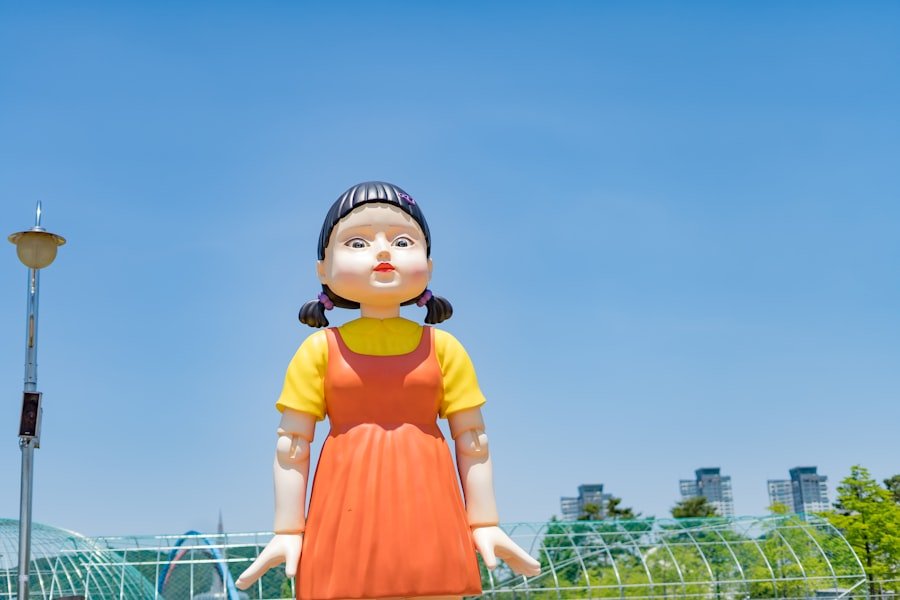

Korean Phrases for Talking About Your Job
In today’s globalised world, the ability to communicate effectively in multiple languages is an invaluable asset, particularly in the professional realm. Korean, with its unique script and rich cultural nuances, has gained prominence as a language of interest for many individuals seeking to expand their career opportunities. Understanding Korean phrases related to the workplace can significantly enhance one’s ability to navigate professional environments in Korea or with Korean-speaking colleagues.
This article aims to provide a comprehensive guide to essential Korean phrases that can be employed in various work-related contexts, from greetings to discussing achievements. As we delve into the intricacies of workplace communication in Korean, it is crucial to recognise the importance of cultural context. The Korean language is deeply intertwined with social hierarchies and respect, which are pivotal in professional interactions.
Therefore, mastering these phrases not only aids in effective communication but also demonstrates cultural sensitivity and respect for the Korean work ethic. Whether you are preparing for a business trip, collaborating with Korean partners, or simply looking to enhance your language skills, this guide will equip you with the necessary tools to express yourself confidently in a professional setting. Learn Korean in Oslo! NLS Norwegian Language School is now offering classes. Register today.
Table of Contents
ToggleSummary
- Korean phrases for talking about your job are essential for effective communication in the workplace.
- Greetings and introductions in the workplace set the tone for professional interactions.
- Describing your job title and responsibilities clearly conveys your role within the organisation.
- Discussing work projects and deadlines helps in effective task management and collaboration.
- Dealing with work-related stress and challenges is important for maintaining a healthy work-life balance.
Greetings and Introductions in the Workplace
When entering a workplace environment, first impressions are paramount. In Korea, greetings are often formal and reflect the hierarchical nature of society. A simple yet effective greeting is “안녕하세요” (annyeonghaseyo), which translates to “Hello.” This phrase is appropriate for most situations and conveys a sense of politeness.
When introducing yourself, it is customary to state your name followed by your job title. For instance, you might say, “저는 [Your Name]입니다” (jeoneun [Your Name]-imnida), meaning “I am [Your Name].” This structure not only introduces you but also establishes your professional identity. In addition to verbal greetings, non-verbal communication plays a significant role in Korean culture.
A slight bow while greeting someone is a sign of respect and is often expected in formal settings. When meeting colleagues or superiors for the first time, it is advisable to use both hands when offering a business card, as this gesture signifies respect and sincerity. By mastering these greetings and introductions, you will create a positive atmosphere that fosters effective communication and collaboration.
Describing Your Job Title and Responsibilities

Once you have established initial contact, discussing your job title and responsibilities becomes essential. In Korean, you can say “제 직업은 [Your Job Title]입니다” (je jik-eob-eun [Your Job Title]-imnida), which translates to “My job is [Your Job Title].” This phrase allows you to clearly convey your professional role within the organisation. It is also beneficial to elaborate on your responsibilities using phrases such as “저는 [specific tasks]을/를 합니다” (jeoneun [specific tasks]-eul/reul hamnida), meaning “I do [specific tasks].” For example, if you are a marketing manager, you might say, “저는 마케팅 매니저입니다” (jeoneun maketing maenijeo-imnida) and follow up with “저는 마케팅 전략을 수립하고 실행합니다” (jeoneun maketing jeonglyag-eul suripago silhaenghamnida), meaning “I develop and implement marketing strategies.” By articulating your job title and responsibilities clearly, you not only inform others about your role but also demonstrate your professionalism and expertise.
Talking About Your Work Schedule and Hours
Understanding how to discuss your work schedule and hours is crucial for effective communication in any workplace. In Korean, you can express your working hours by saying “저는 매일 [number] 시간 일합니다” (jeoneun maeil [number] sigan ilhamnida), which means “I work [number] hours every day.” For instance, if you work eight hours a day, you would say, “저는 매일 8시간 일합니다” (jeoneun maeil 8 sigan ilhamnida). Additionally, discussing your work schedule can involve talking about specific days off or flexible hours.
You might say “저는 주말에 쉬어요” (jeoneun jumal-e swieoyo), meaning “I take weekends off.” If your schedule allows for flexibility, you could express this by saying “저는 유연한 근무 시간을 가지고 있습니다” (jeoneun yuyeonhan geunmu sigan-eul gajigo itsseumnida), which translates to “I have flexible working hours.” Mastering these phrases will enable you to communicate effectively about your availability and work-life balance.
Discussing Work Projects and Deadlines
In any professional setting, discussing ongoing projects and deadlines is a common occurrence. To talk about a project in Korean, you can use the phrase “현재 진행 중인 프로젝트는 [Project Name]입니다” (hyeonjae jinhaeng jung-in peurojekteu-neun [Project Name]-imnida), meaning “The project currently in progress is [Project Name].” This phrase allows you to provide clarity on what you are working on. When discussing deadlines, it is important to convey urgency and clarity.
You might say “이 프로젝트의 마감일은 [date]입니다” (i peurojekteu-ui magam-il-eun [date]-imnida), which translates to “The deadline for this project is [date].” If you need assistance or collaboration from colleagues, you can express this by saying “이 프로젝트에 대해 도움을 주실 수 있나요?” (i peurojekteu-e daehae doumeul jusil su innayo?), meaning “Can you help with this project?” By using these phrases, you can effectively communicate about projects and ensure that everyone is on the same page regarding timelines and responsibilities.
Asking for and Giving Work-related Advice

In a collaborative work environment, seeking advice from colleagues or offering guidance can foster teamwork and innovation. To ask for advice in Korean, you might say “조언을 주실 수 있나요?” (jo-eun-eul jusil su innayo?), which means “Can you give me advice?” This phrase opens the door for constructive dialogue and shows that you value the input of others. Conversely, when providing advice, it is essential to be respectful and considerate.
You can say “제 생각에는 [suggestion]이 좋습니다” (je saeng-gageneun [suggestion]-i jo-seumnida), meaning “In my opinion, [suggestion] is good.” For example, if you believe that a particular strategy would be beneficial for a project, you could say “제 생각에는 이 전략이 좋습니다” (je saeng-gageneun i jeonglyag-i jo-seumnida). By mastering these phrases, you will create an environment where open communication thrives, leading to better collaboration and problem-solving.
Expressing Your Work-related Goals and Aspirations
Articulating your professional goals and aspirations is vital for career development and networking. In Korean, you can express your goals by saying “제 목표는 [goal]입니다” (je mokpyo-neun [goal]-imnida), which translates to “My goal is [goal].” For instance, if your aim is to become a team leader, you might say “제 목표는 팀 리더가 되는 것입니다” (je mokpyo-neun tim lideoga doeneun geos-imnida). Additionally, discussing aspirations can involve long-term plans or specific skills you wish to acquire.
You could say “저는 [skill]을 배우고 싶습니다” (jeoneun [skill]-eul baeugo sipseumnida), meaning “I want to learn [skill].” By expressing your goals and aspirations clearly in Korean, you not only motivate yourself but also invite support from colleagues who may share similar ambitions or offer guidance along your career path.
Dealing with Work-related Stress and Challenges
Work-related stress is an inevitable part of any job; therefore, knowing how to discuss it in Korean can be beneficial for seeking support or understanding from colleagues. You might say “요즘 스트레스를 많이 받고 있습니다” (yojeum seuteureseu-reul mani batgo itsseumnida), which translates to “I am experiencing a lot of stress these days.” This phrase opens up a conversation about mental health and well-being in the workplace. When discussing challenges at work, it is important to be constructive rather than solely focusing on the negative aspects.
You could say “이 문제를 해결하기 위해 노력하고 있습니다” (i munjeleul haegyeolhagi wihae noryeokhago itsseumnida), meaning “I am working hard to solve this problem.” By framing challenges positively and seeking solutions collaboratively, you foster an environment of support and resilience among colleagues.
Discussing Work-related Achievements and Recognition
Celebrating achievements in the workplace is essential for motivation and morale. To discuss your accomplishments in Korean, you might say “저는 최근에 [achievement]을/를 달성했습니다” (jeoneun choegeun-e [achievement]-eul/reul dalseonghaessseumnida), which means “I recently achieved [achievement].” For example, if you completed a significant project successfully, you could say “저는 최근에 중요한 프로젝트를 성공적으로 완료했습니다” (jeoneun choegeun-e jungyohan peurojekteu-reul seonggongjeogeuro wanryohaessseumnida). Moreover, acknowledging the contributions of others is equally important.
You might express gratitude by saying “팀원들의 도움 덕분에 이룰 수 있었습니다” (timwon-deul-ui doum deogbune irul su isseosseumnida), meaning “Thanks to my team members’ help, I was able to achieve this.” By sharing achievements and recognising teamwork in Korean, you contribute positively to the workplace culture.
Talking About Work-related Training and Development
Continuous learning and development are vital components of career growth. To discuss training opportunities in Korean, you can say “저는 [training program]에 참여하고 싶습니다” (jeoneun [training program]-e chamyeohago sipseumnida), which translates to “I want to participate in [training program].” This phrase demonstrates your commitment to professional development. Additionally, discussing skills acquired through training can be beneficial for showcasing your growth.
You might say “이 교육을 통해 [skill]을 배웠습니다” (i gyoyug-eul tonghae [skill]-eul baewot-seumnida), meaning “I learned [skill] through this training.” By engaging in conversations about training and development in Korean, you not only highlight your dedication but also encourage others to pursue similar opportunities.
Concluding Remarks and Summary of Useful Korean Job-related Phrases
In conclusion, mastering Korean phrases related to the workplace can significantly enhance your professional interactions and open doors to new opportunities. From greetings and introductions to discussing achievements and training opportunities, each phrase serves as a building block for effective communication in a Korean-speaking environment. As we have explored throughout this article, understanding cultural nuances and employing appropriate language can foster positive relationships with colleagues and superiors alike.
For those interested in furthering their knowledge of the Korean language, the NLS Norwegian Language School in Oslo offers specialised courses tailored specifically for learning Korean. These courses provide an immersive experience that focuses on practical language skills applicable in various contexts, including business settings. By enrolling in these courses at NLS, learners can gain confidence in their ability to communicate effectively in Korean while also deepening their understanding of the culture that shapes the language.
Whether you’re starting from scratch or looking to refine your skills, NLS provides an excellent platform for achieving fluency in Korean—an invaluable asset in today’s interconnected world.
If you want to learn Norwegian, you can register for classes here. We look forward to hearing from you and helping you become fluent in Norwegian.





